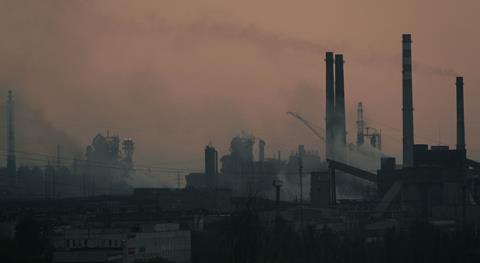Steve Hoover talks to Elbert Wyche about his Tribeca documentary on Gennadiy Mokhnenko’s work with vulnerable children in Ukraine.

Mokhnenko has dedicated a life of service to rescuing the large population of children in Ukraine left homeless and addicted to narcotics and alcohol following the collapse of the Soviet Union. Terrence Malick served as executive producer.
Preferred Content handles US sales and ro*co Films representsinternational sales.
How did you discover Gennadiy and why did you want to do a film exploring his efforts in Ukraine?
I worked for a production company in Pittsburgh where we did a lot of commercial work and commissioned pieces. Some of our crew was commissioned to do a promo in Ukraine. One of their stops was at Gennadiy’s Pilgrim center. So they actually met him and just intuitively went off-project and started to film some of what he was doing.
At the time we were looking for another project to do a feature length piece on. So after they shared some of the footage with me and walked me through some of the context, it was kind of a no-brainer. He had years of archival footage where he had documented a lot of what he’d done. He was just a really compelling subject on camera.
How long did filming actually take place?
It started in 2012 – we used footage from that initial trip. We filmed in 2013 and through the end of 2014. I was trying to keep the piece current by adding developments from 2015. I wrapped it all last month.
Did the Russian invasion of Crimea disrupt his work, or does he continue today?
What I’ve come to understand about Gennadiy is that his work is always adapting to Ukraine and all of the problems around him. It’s evolved. The conflict right now in Mariupol is the lynchpin in the conflict. Everyone is at a standstill and it has all built up to Mariupol.
The conflict has influenced and changed all of their lives. His work has changed as a result. He’s worked with Ukrainian soldiers on the front line. I’ve even come across instances where he’d found a couple of kids on the front lines who were separated from their parents. He worked to get them reunited. As the country changes, so will his work.
Do you still keep in touch with any of them?
I generally need a translator when I talk to him, even though he has broken English. The conversation is really limited. We’ve kept up from time-to-time to find out what’s going on, how things have developed. I follow the conflict pretty closely through the news. I try to stay connected through various social media connections that I made with people there.
Was it difficult to make the film, given the subject matter and his interaction with children who were in bad shape?
He has to deal with a lot of children coming from different situations. It’s all emotionally taxing in different ways. Because I can’t speak Russian, a lot of it was processing and confusion and trying to understand a person and a place that I didn’t understand. I’m the editor for the film so for almost an entire year I was in darkness looking at some really harrowing, raw footage of his work. It was definitely hard to do.

























No comments yet